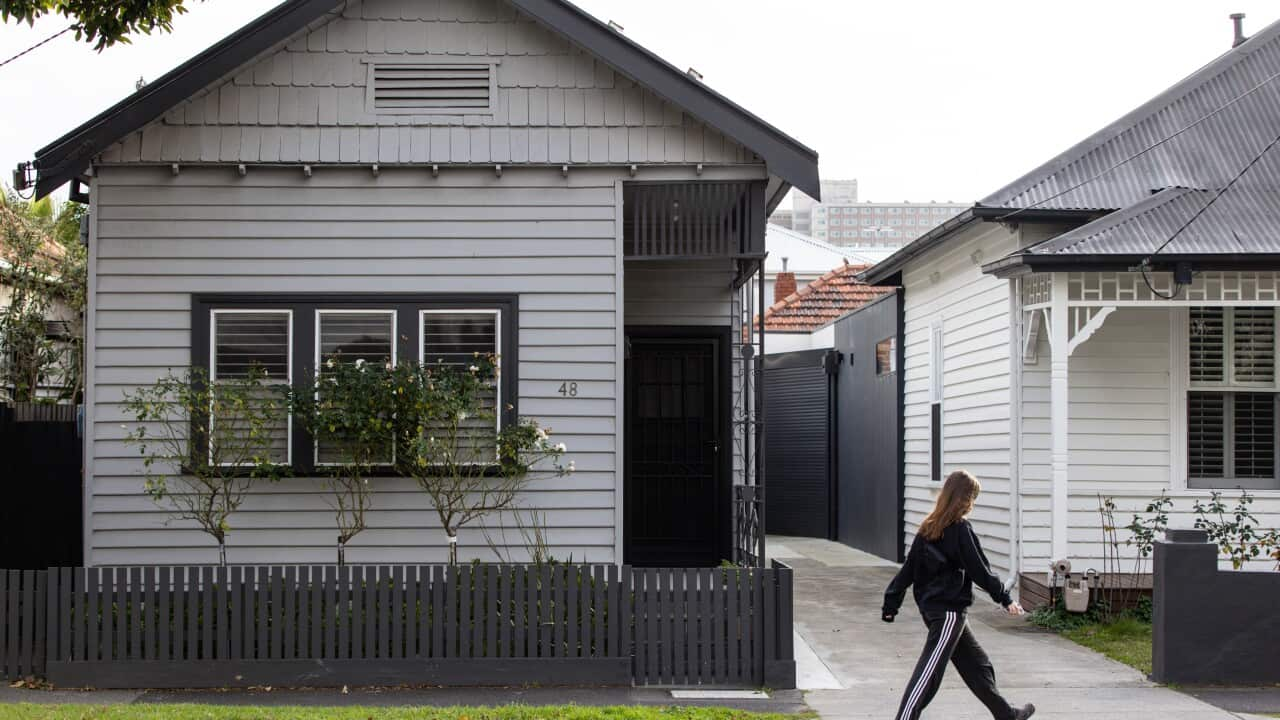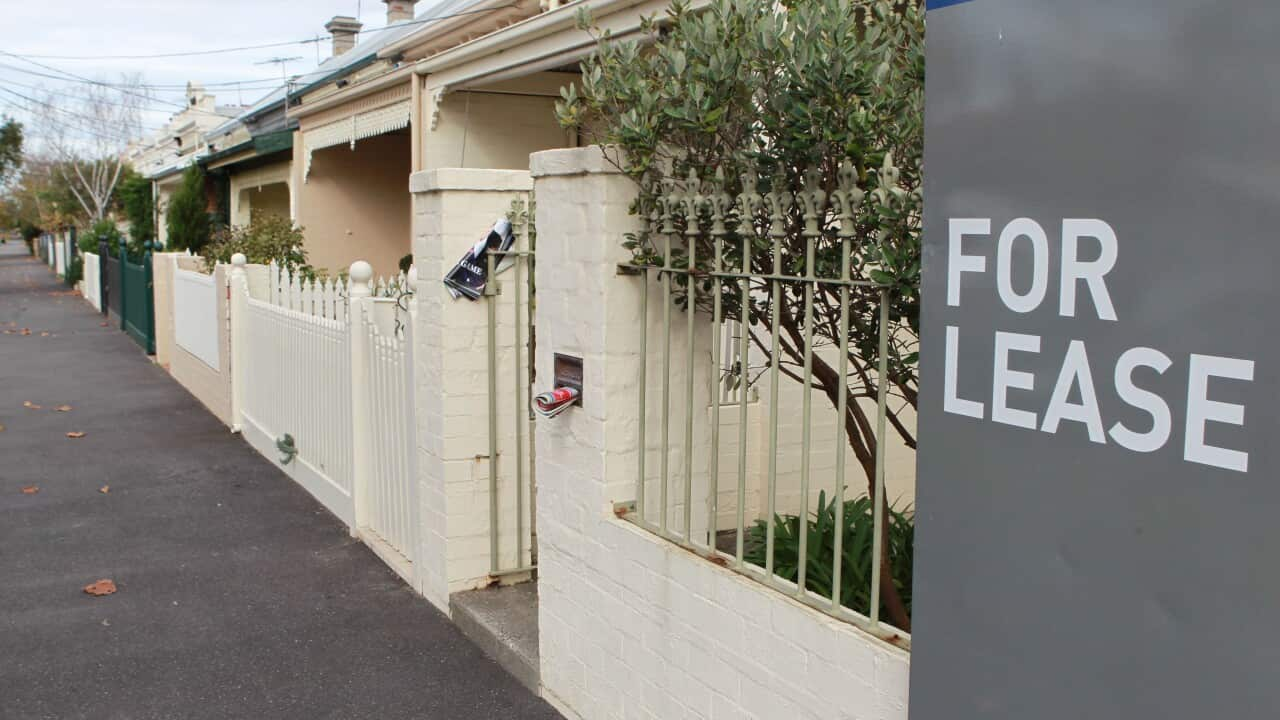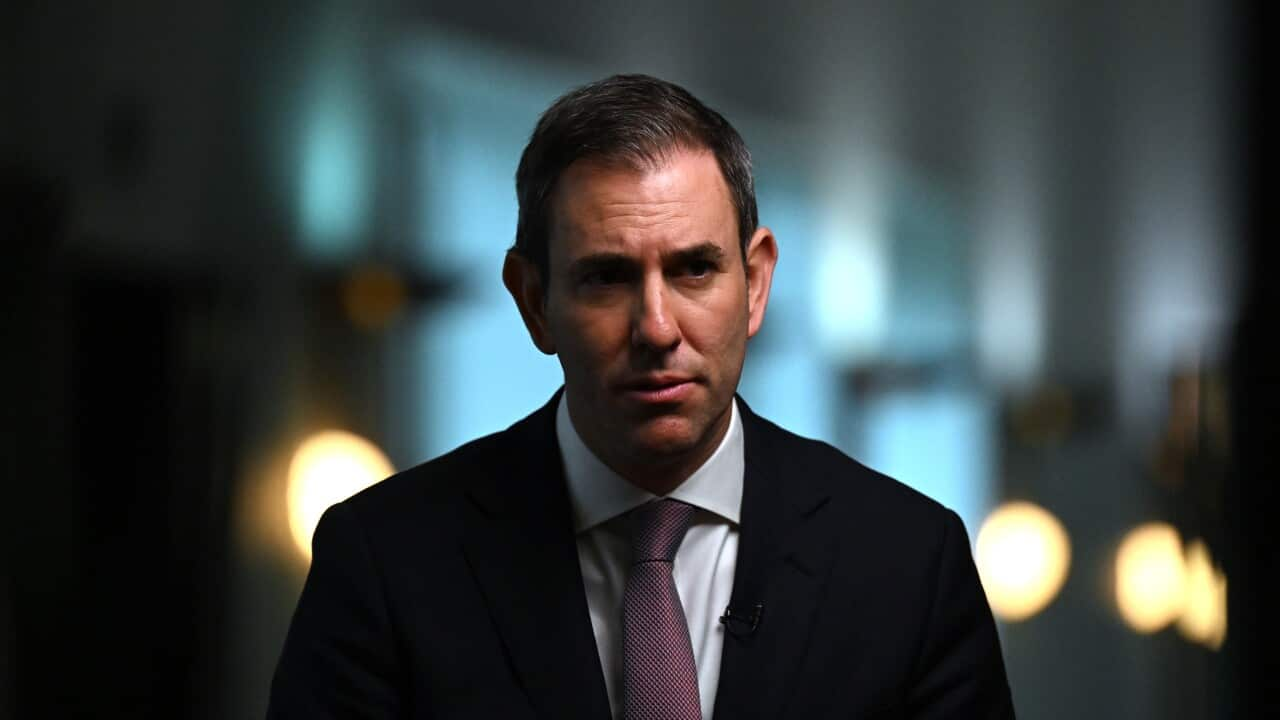Key Points
- Australian property prices have experienced the sharpest quarterly decline on record.
- It come as as a lack of rental supply has driven rental prices up.
House prices have recorded one of their sharpest-ever falls, with the average property falling around $53,000 from their peak earlier this year.
The latest House Price Report from Domain shows house prices in capital cities fell 4.9 per cent in the last quarter, from a peak in March, but properties are still worth more than they were prior to the COVID-19 pandemic.
Nicola Powell, Chief of Research and Economics at Domain, told SBS News that while prices have "rapidly fallen" over the September quarter, "they remain significantly higher than what they were before the recent pandemic property boom".
"We've still got all capital cities above what they were pre-pandemic, anywhere from 17 per cent to 47 per cent higher," she said.
How the most vulnerable are dealing with recent house price changes
Ms Powell said "most homeowners" would have bought their homes before the pandemic and will still be reaping "strong rates" of capital growth.
However those who bought homes during the pandemic, and are looking to sell, are "most vulnerable" and likely in negative equity, she said.
She said there's an opportunity for homeowners to sell and buy their next home after several months at a lower price, meaning their dollars "can go a bit further".
"When a market is slowing down, if you're a seller, and you sell your home, and then you perhaps don't secure your property for another one or two months, what you may find is your dollars go that little bit further because the market is expected to continue to fall," she said.
Data from Domain's report showed Canberra and Sydney took the worst hits to median house prices.
Darwin and Canberra took the worst hits to unit prices.


Lower prices offset by higher interest rates. What does this mean for first-time buyers?
Shane Oliver, Chief Economist and Head of Investment Strategy at AMP Capital, told SBS News that lower house prices are offset by higher interest rates.
"It's hard to say it's a positive balance for first-time buyers trying to get into the market because interest rates have gone up," he said.
"Lower house prices have been offset by higher interest rates, resulting in no improvement in affordability."
However, Mr Oliver said one positive benefit for first-home buyers will be that they won't have to spend as long saving for a deposit.
"As prices continue to drop, it will create opportunities for first-time buyers," he said.
"When prices are down, you don't have to spend as long saving for a deposit.
"They still service the loan on higher interest rates, but at least the deposit hurdle will become less testing."
The Reserve Bank of Australia (RBA) raised interest rates for the sixth consecutive month in October, taking the cash rate to 2.6 per cent from 0.1 per cent in April.
The RBA has flagged that it expects to increase interest rates further to lower inflation.
Rents continue to rise
, with the number of rental properties listed on realestate.com.au plummeting 20.5 per cent in the year to September.
Low rental availability as landlords can afford to hike rents when tenants have limited choice.
PropTrack director of economic research Cameron Kusher told SBS News a low supply of rental properties is driving up rental prices.
"Since the beginning of the pandemic, March 2020, to September of this year, the number of properties listed for rent on realestate.com, is down 35-and-a-half per cent," he said.
"And at the same time, we've got more people renting because there's been less investor purchasing.
"We've seen a big fall away over the last year-and-a-half in first home buyer borrowing as well."
Mr Kusher said migration is also driving up rents.
"From the start of this year we've had migration ramping back up as well and most people that move to Australia don't have a home that they own when they get here, so they end up renting for some time before they either go back home or decide they're going to stay and move into home ownership," he said.
Rents surged 4.3 per cent in the three months to September - the fastest quarterly rate on record, the report added.




